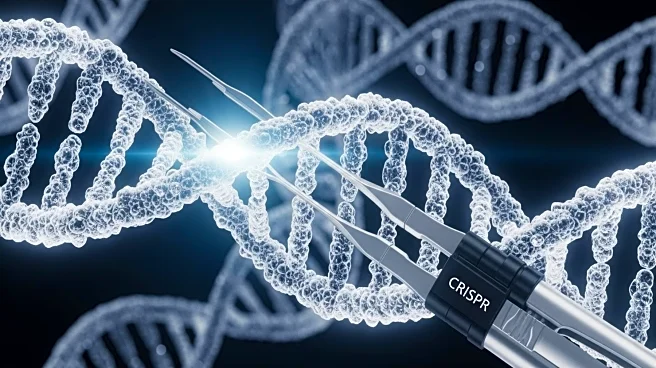What is the story about?
What's Happening?
Researchers at the University of California, San Francisco, have published a study demonstrating that CRISPR activation can restore SCN2A gene expression, potentially reversing deficits in models of SCN2A-haploinsufficiency. This genetic condition is a leading cause of neurodevelopmental disorders and early-onset epilepsy. The study, published in Nature, highlights the therapeutic promise of Regel Therapeutics' targeted EpiEditing platform, which uses CRISPR activation to upregulate gene expression without altering DNA sequences. The findings suggest that even late-stage restoration of SCN2A expression can improve disease-related phenotypes, offering hope for affected individuals.
Why It's Important?
The study represents a significant breakthrough in the treatment of SCN2A-related disorders, which currently lack approved therapies targeting the root cause. By demonstrating the potential of CRISPR activation to restore gene function, the research opens new avenues for treating neurodevelopmental disorders and epilepsy. This advancement could lead to the development of precision therapies that improve the quality of life for patients and their families. The success of Regel Therapeutics' platform underscores the growing importance of genetic editing technologies in addressing complex medical conditions.
What's Next?
Regel Therapeutics plans to translate the UCSF team's findings into clinical applications, aiming to develop therapies for SCN2A haploinsufficiency and other haploinsufficient disorders. The company is preparing to advance its targeted EpiEditing platform into clinical trials, potentially offering new treatment options for patients. The collaboration between UCSF and Regel Therapeutics highlights the role of academic-industry partnerships in accelerating medical innovation. Stakeholders in the healthcare and biotech sectors will be monitoring the progress of these developments closely.















